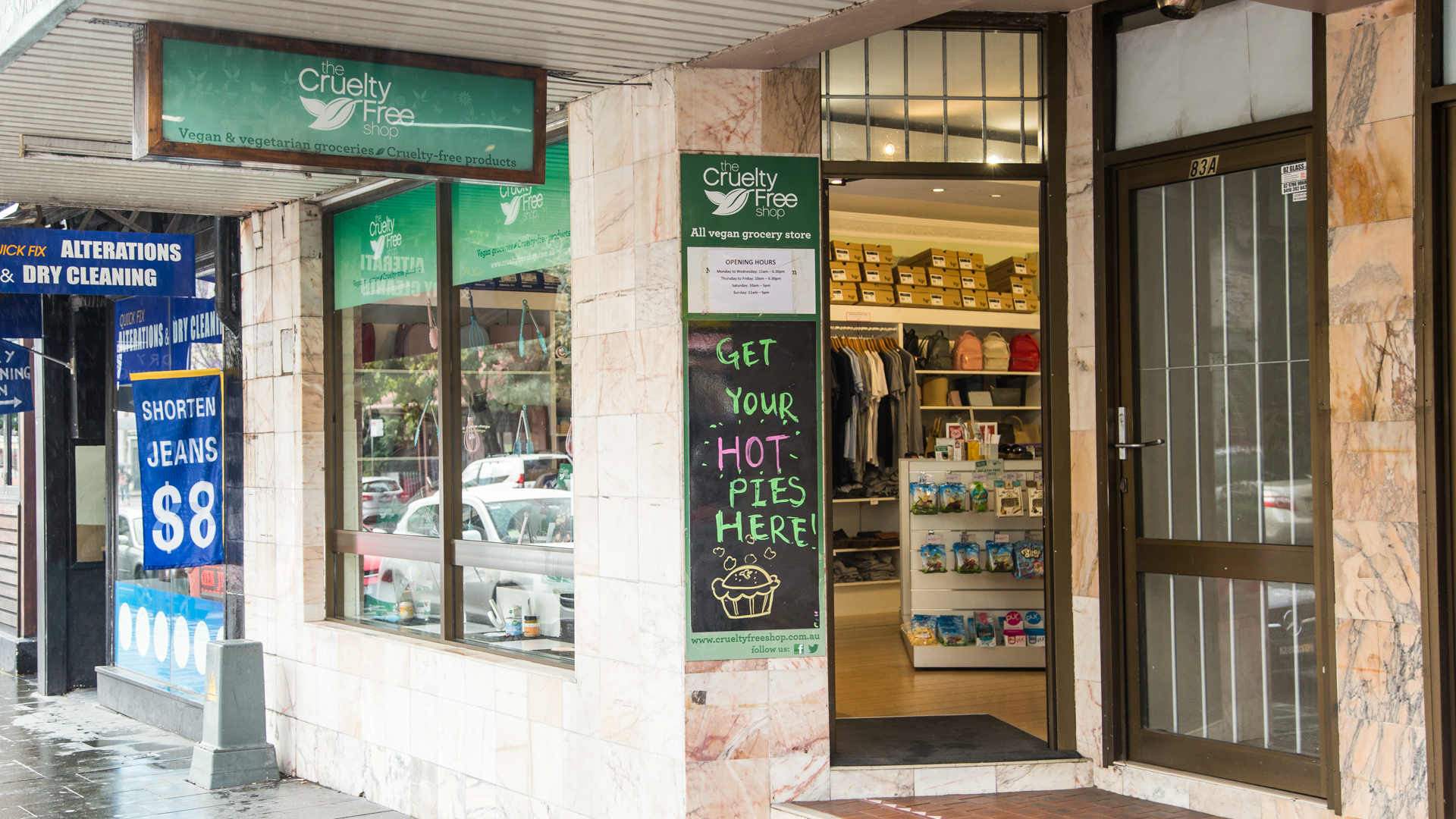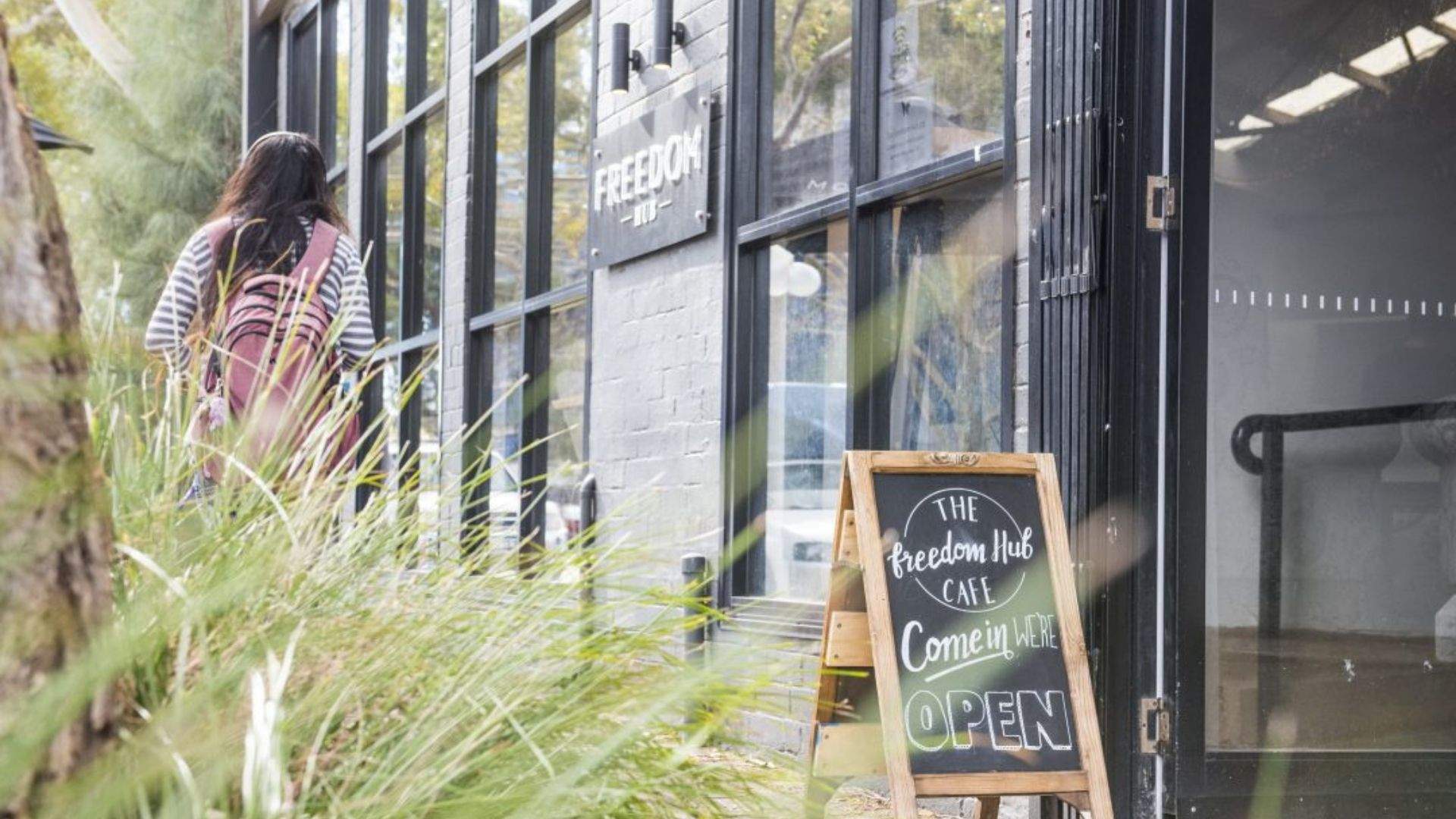How These Small Businesses Stay Sustainable in Their Day-to-Day
Discover the simple eco-friendly choices these local entrepreneurs make to help the world.
A day in the life of a business owner revolves around decision making. Does this web design look right? Have we ordered enough stock? When is the right time to move to a bigger space?
With so many priorities to juggle, it's tough to consider the bigger picture. But, thinking about the long-term impact of our day-to-day decisions is essential — small actions add up and have the power to create powerful change.
Sustainability can be too often overlooked when building a business. So, we've gathered some sage advice from sustainably focused local businesses. Discover their simple strategies for making eco-friendly choices and practical sustainability tips — and see how you can apply them to your own business (or everyday life).

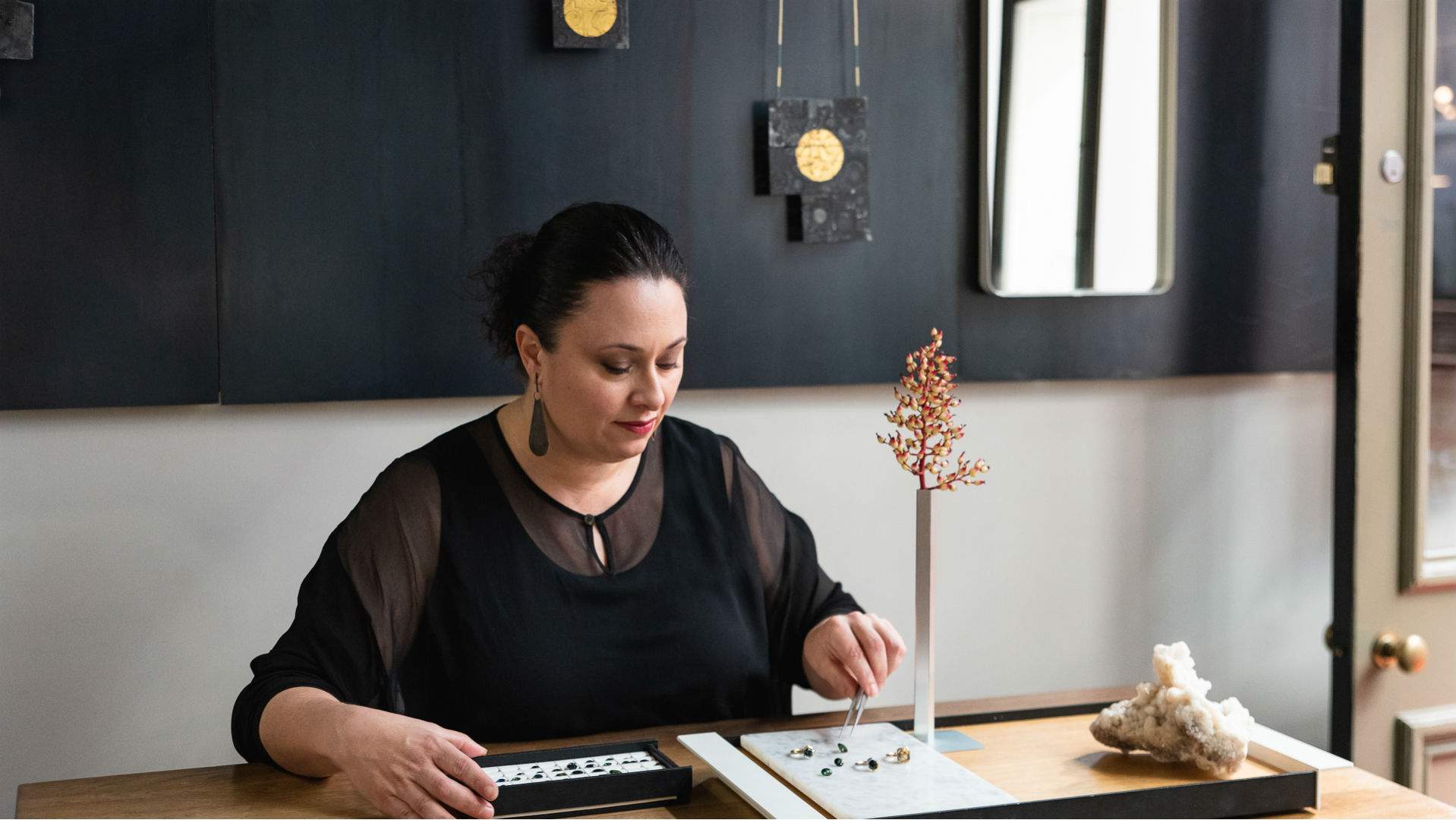
Kimberley Low
CREATING WITH LONGEVITY IN MIND
In a small Surry Hills laneway, Nina Cueva and Cesar Cueva co-founded their contemporary jewellery and objects gallery space. Over the past 15 years, the duo has navigated the everchanging bricks-and-mortar landscape. Now, boasting three spaces across The Strand Arcade, their ethos of community, craftsmanship and innovation remains unchanged.
Courtesy of the Artist represents over 80 artists from Australia and around the globe. Here, sustainability comes to life as a celebration of bespoke treasures. In store, you'll find exclusive one-off pieces that are designed to last and crafted using sustainably mined gemstones and gold from Western Australia. Plus, regular talks, workshops and demonstrations allow shoppers to meet and engage directly with artists.
Over the years, Courtesy of the Artist has introduced other sustainable practices into its business. All tax invoices are sent digitally and a paperless tracking system for orders is used. These simple, practical changes serve to reduce waste, cut unnecessary costs and simplify the retail experience.

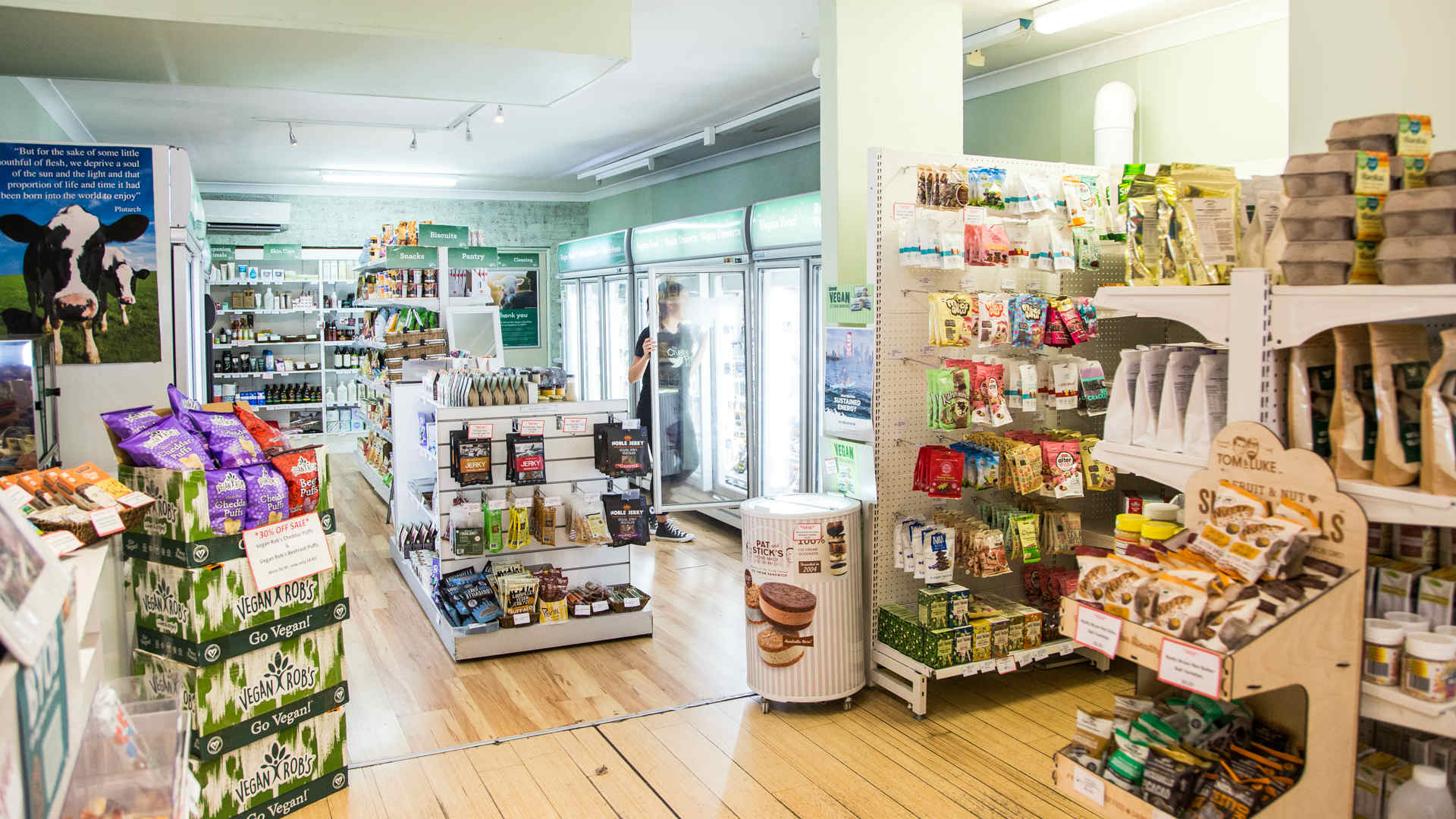
Trent van der Jagt
CHAMPIONING SUSTAINABLY PRODUCED FOOD
In 2001, finding vegan products on supermarket shelves was a tough ask. So, Jessica Bailey founded The Cruelty-Free Shop. This one-stop shop for vegan-friendly food, beauty and home goods. It's an online store turned bricks-and-mortar supermarket with locations around Australia, including a Sydney store in Glebe.
Leaping offline wasn't without its challenges though. Bailey quickly learned the value of asking for a helping hand. With the mentorship and guidance of the City of Sydney's Retail Innovation Program, Bailey uncovered the need to delegate and expand her team. "The program helped me see the big picture and step away from the minute detail which freed up my time to come up with new ideas," explains Bailey.
With her creative juices flowing, The Cruelty-Free Shop has grown from strength to strength. For Bailey, sustainability means empowering shoppers to make the switch to a plant-based diet. In store, you'll find vegan recipe cards and information to inspire more sustainable food choices. Plus, Bailey is committed to supporting animal rights charities that align with her core business values through events and fundraisers. "Last year alone, we raised $80,000 for these charities," she reveals.

SEEKING OUT ETHICAL SUPPLIERS
For most of us, slavery and human rights are abstract concepts. But these abuses happen every day, and The Freedom Hub is one business set up to address them. On top of being an ethical cafe, events and retail space, it's also home to the Survivor School, which rehabilitates victims of modern slavery.
Across its two cafe locations (Sydney's Waterloo and Palm Beach on the Gold Coast), the business focuses on having an ethical supply chain and ensures its suppliers are free from slavery or environmentally damaging manufacturing methods. In store, you'll find smashed avo with sourdough from The Bread and Butter Project on the menu and stacks of 100 percent recycled Who Gives A Crap toilet paper in the restroom. Plus, it's actively giving back to organisations that work towards social good.
With 100 percent of all cafe proceeds going directly towards its Survivor School, the business model ensures everyone has the opportunity to do good.

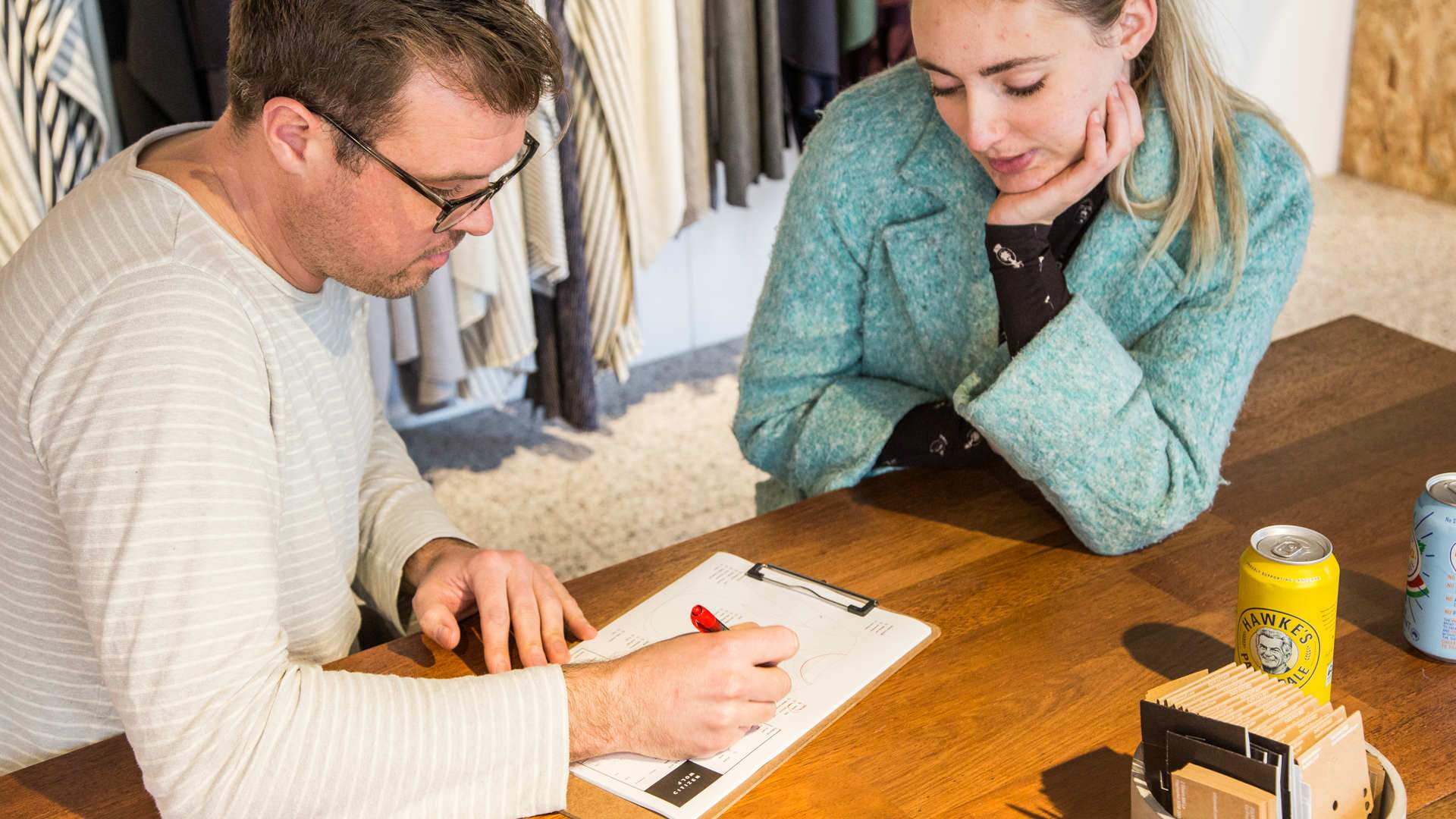
Trent van der Jagt
USING AUTOMATION TO SAVE RESOURCES
One in three pieces of clothing ends up in landfill. That quite sobering stat is what sparked co-founders Zoltan Csaki and Eric Phu to create Citizen Wolf. The 'smarter casual' Sydney fashion label delivers tailored t-shirts made to order. The best bit? It uses a 'magic fit' algorithm and machinery to remove the manual labour of traditional apparel production. Plus, this customisation means a perfect fit every time — working towards its goal of being a zero-waste business.
The range is a focused offering of men's and women's tees. Each piece is made in a Darlinghurst factory using fabrics sourced from a series of Melbourne-based mills. "It is important to us that we can keep the supply chain as short as we possibly can," explains Csaki.
As far as fashion brands go, Citizen Wolf is undeniably going against the grain. It's invested in sourcing biodegradable and natural fibres for all of its garments and ensures zero labour exploitation across the business. Plus, making pieces on demand ensures there's no unsold inventory going to landfill.

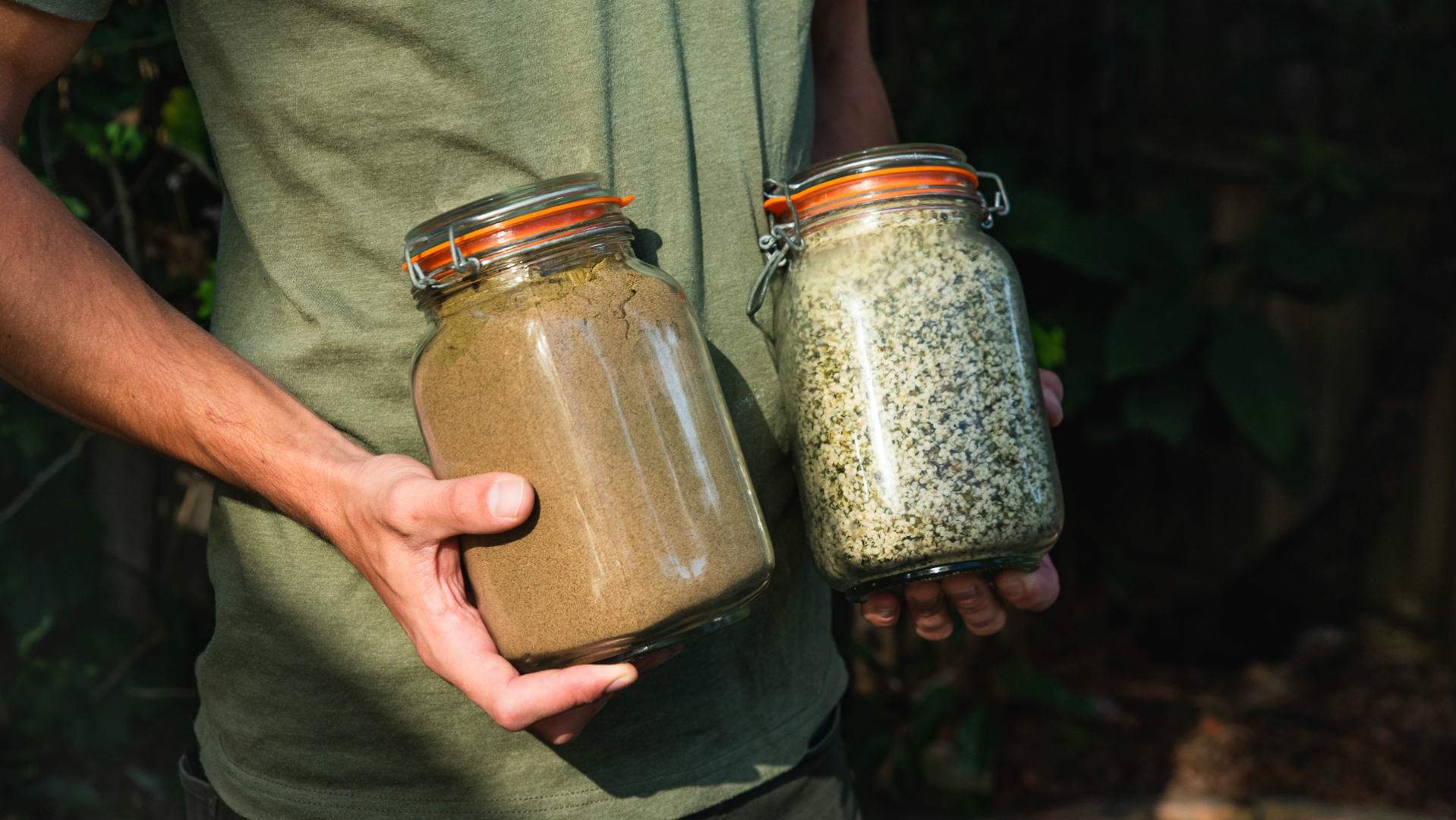
Kimberley Low
HARNESSING 100 PERCENT AUSTRALIAN INGREDIENTS
Flocking to the markets is how Sydneysiders prefer to do their groceries. And for those who frequent Bondi Farmers Market, you'll be familiar with hemp foods provider Senzu Roots.
This Sydney-based startup delivers a range of sustainable hemp-driven products. Offering everything from protein powders to oils, plus a new range of gourmet nut bars and smoothies, founder Romain Hannequin hopes to make a positive impact on the environment one bliss ball at a time.
"Our hemp is 100 percent Australian-grown. And, our 'raw products' (seeds and protein powder) are offered in biodegradable and compostable packaging," Hannequin explains. The commitment to working alongside local farmers and suppliers means lower food mileage, less energy usage and fresher produce for consumers.
In its commitment to shopping local, Senzu is keeping its offline presence to just a handful of markets alongside limited online sales. "I believe that consumers are going to support smaller, local businesses offering ethical and sustainable products, and that's why we will focus on working with small businesses instead of big chains," says Hannequin.

Top Image: Trent van der Jagt.
